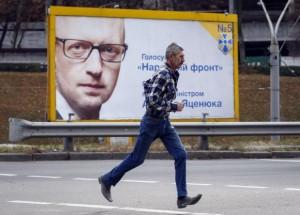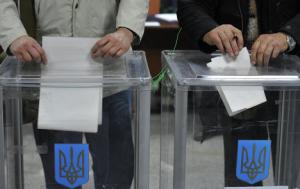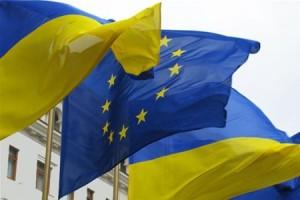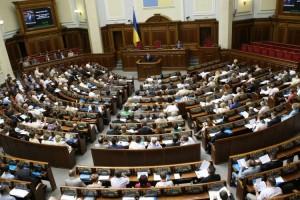War veterans steal limelight in Ukraine’s new parliament
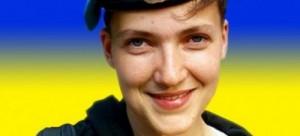
War veterans and nationalist radicals brought a revolutionary air to the opening on Thursday of Ukraine’s new parliament convened to name a government to hold the country together and set out a program of far-reaching reform.
Hundreds of riot police guarded the building as the parliament quickly formed a five-party coalition of support for the pro-Western President Petro Poroshenko and later elected Arseny Yatseniuk for a new term as prime minister.
But it was the men, and women, of force who stole the limelight from the besuited politicians when proceedings opened in the ornate parliament building a short walk from Kiev’s Independence Square or Maidan, the center of last winter’s Euromaidan revolution.
Several deputies in battle fatigues — the sign of volunteer fighters from the war front against pro-Russian separatists — stood out among the ranks of politicians who swore an oath of allegiance in the 450-seat assembly.
Outgoing speaker Oleksander Turchynov brought an air of triumph by announcing that one of the deputies, Nadia Savchenko, a Ukrainian military pilot, had managed to take the oath, with the help of her lawyer, despite being held in a Moscow psychiatric clinic.
Savchenko, 33, was captured by separatists and spirited into Russia where she is accused of involvement in the deaths of two Russian journalists in Ukraine. To cheers from the assembly, her signed oath was flashed up on a giant screen.
In a break with the old Soviet-style proceedings, many male deputies wore traditional Ukrainian embroidered shirts under their jackets.
Outside the chamber, fighters from various volunteer battalions, as well as serving soldiers — many of them who have become household names in the past year of revolution and war — mingled with the media.
Yuli Mamchur, 43, a diminutive Ukrainian air force colonel, who became an overnight hero when he defied pro-Russian forces by refusing to leave his post in Crimea last March, seemed nonplussed in the hustle and bustle around him.
Asked if life was easier for him as a member of the Kiev parliament than when he was serving in Crimea, he replied: «No. It’s harder here. I don’t know a lot of people here. One has to define the atmosphere and work out the disposition of forces. But one must get down to battle. There’s no other way.»
Читать полностью здесь: IPnews
War heroes and activists to shape new-look Ukraine
Reuters — Out will go the bodyguards and mistresses, in are likely to come the street activists and war veterans:Some facts about Ukraine’s parliamentary election 2014
Ukrainian President Petro Poroshenko ordered a snap parliamentary election for Oct. 26 with the aim of clearing outUkraine has only a year for implement radical reforms
Ukraine’s pre-term parliamentary election on October 26 will elect a new parliament that will be undoubtedlyUkraine: The new parliament can begin work on December 1
Vladimir Groisman, vice prime minister of regional development predicts start of work of the new parliament on DecemberНет комментариев.
Информация
Посетители, находящиеся в группе Гости, не могут оставлять комментарии к данной публикации.
